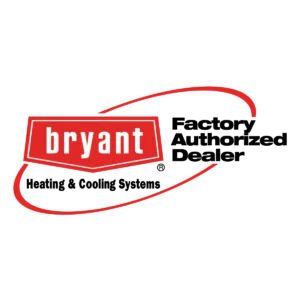Whether you’re hooked up to a municipal water supply or are pumping well water from your own land, there is going to be some variance in the quality of your tap water, even if it is safe to drink. Whether it has a sulfur or chlorine smell, a hazy appearance from sediment or perhaps chemical levels that are too high for your comfort, many people choose to install whole house water purification systems to alleviate their concerns.
Many homeowners turn to point-of-entry water purification systems looking for safer, cleaner water and the peace of mind that comes with it. Beyond improving the taste and appearance of your drinking water, whole house water purification will also benefit your plumbing and appliances by removing excess minerals that can build up and reduce water flow.
What Whole-House Water Purification Means
While more than 90% of tap water is deemed safe to drink, safety doesn’t always translate to tasty or even clear. Whether your skepticism about the quality of your home’s water is based on sight, smell, or the levels of contaminants deemed acceptable by the EPA, a water purification system might be the answer to your concerns. Water filtration falls into two camps for consumers:
Based on your specific home’s needs and water problems you want addressed, there are many types of filters and systems available to fix your specific problem. Arsenic, sulfur, high-iron, combination purifier, or a simple water softener, a wide array of options are available.
What do water filters take out of tap water?
Odor and Sediment
A stinky smell and hazy appearance are common complaints about well water in particular. Some tap water has a chlorine smell to it, but is still safe to drink. There are special whole home water filters designed to specifically combat each of these issues.
Hard water is tap water that has high levels of magnesium and calcium, minerals that can benefit your health in small amounts, but can cause a chalky buildup in pipes, appliances and basins called limescale. A whole home water purification system will reduce these minerals to levels that will not harm your plumbing and appliances, plus filter out a whole lot more.
3 extremely easy ways to use less water every day
Chemicals and Contaminants
While more than 90% of tap water is safe for consumption (with most of the remaining 10% being non-regulated private sources), the water still risks carrying low levels of the following chemicals.
- Lead in drinking water usually comes from decay in old lead-based pipes, fixtures and leaded solder affixed to drinking water pipes. Tap water that is safe for drinking should not contain any lead.
- Tasteless and odorless, very low amounts of this poisonous substance is safely present in tap water.
- Most commonly found in well water, radon is a cancer-causing radioactive gas present in some soils that sometimes seeps into well water.
- Heavy metals. Heavy metals can enter a water supply via industrial and consumer waste. These harmful substances are known to induce multiple organ damage at low level exposures.
- Organic and manmade compounds. Organic matter and sediment from lakes and rivers may be safely present in low levels in drinking water, as well as many man-made chemical compounds.
For a complete list of legal levels of chemicals and compounds in drinking water, reference the current EPA standards.
Well Water Considerations
If your home uses well water, make sure to test it at least once per year, both at the tap and at the source. Private wells source groundwater, which is not always treated before it enters your home. Owners of private wells and non-government water systems are responsible for regular water safety testing.
According to the CDC, about 15% of the nation’s population obtains water from private wells, making regular water tests imperative for health and safety. It is also recommended to have your well tested for radon every three to five years. If it is a newly constructed well or has undergone recent repair, more frequent radon testing is recommended as the well settles.
A hazy appearance, sulfuric scent and a low pH level that causes corrosion to plumbing are a few reasons people with well water install whole home water purification systems.
Plumbing problems and concrete slab foundation homes
Treating Hard Water With A Water Softener
The primary reason to have a water softener is to extend the lifespan of your plumbing and home appliances, because the salt will remove the calcium and magnesium from the water, to prevent limescale buildup in your pipes. The chalky mineral residue that causes soap scum, calcium stains and hazy sediment is something we’d all like to avoid.
However, even though water softeners change water’s taste and appearance, it does not make it any cleaner or safer.
How to learn about water quality locally
Are you interested in knowing exactly what contaminants your water contains? If your home is served by a public water source, the EPA encourages you to reach out to your local utility and request a copy of their Consumer Confidence Report. Every water provider is legally required to issue this report once annually and distribute to all recipients registered with the utility. The report will contain what levels of chemicals and minerals are found in your water supply and inform you of its general quality and health.
If you feel concerned for your health each time you raise a glass of water to your lips, test your water, request a Consumer Confidence Report and read up on point-of-entry water purification systems to see if one is a good fit for you.
Your HVAC system: Understanding the basics
Water Purification Installation, Maintenance and Repair
If you are considering installing a whole home water purification system, call your local plumbing experts at John C. Flood for assistance! Once you figure out what problems you need to address, you can choose the home water purification system that best suits your needs.
Our trusted team of courteous professionals will be happy to perform installation, maintenance or repairs so your home always has an endless supply of healthy, delicious tap water. Give us a call at (703) 214-5611!






